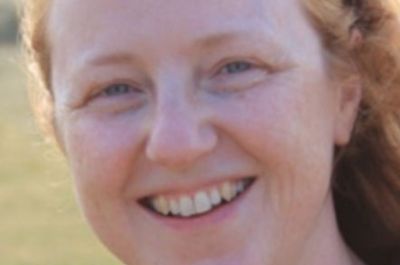Professor Diane Dixon, Head of Psychology at Edinburgh Napier

Firstly, could you tell us about your background?
When I was a child, I knew I wanted to be a scientist. You couldn’t even study psychology at school at that time, which was the late 1970’s. I began my career in pharmacology, which I have a PhD in. My second PhD is in Psychology, which I didn’t go into until much later. I did about a decade’s worth of postdoctoral research as a pharmacologist. I then left research and went to work for The Welcome Trust, which is a medical research charity in London. That’s where I first found my interest in psychology, particularly within areas such as mental health and neuroscience. During that period, which was the mid-1990’s, the Wellcome Trust was supporting some of the world’s leading clinical psychologists who were making significant impacts on treatments for mental health conditions such as social anxiety, eating disorders and depression. This work really interested me. I had trained as a pharmacologist, which is focussed on drug treatments and here was an entirely different approach that used ‘talking treatments’. I found that difference really interesting, so much so, that I decided to retrain as a psychologist.
This meant I had to go back into undergraduate studies in my mid-thirties. I came back to Scotland to study at Strathclyde University, and during that time I was taught health psychology by Rory O’Connor. Rory is the world’s leading expert on suicide, and he got me interested in health psychology. He convinced me that I should do another PhD, so at 40 I did. I moved to St Andrews to do my PhD under the supervision of Professor Marie Johnston, who was responsible for establishing the discipline of Health psychology in Europe. So, I have been really lucky to study with some of the world’s leading health psychologists.
A large part of what I tell the undergraduates I teach is linked to my own experience. It’s ok not to know what you want to do, particularly as a career, at such a young age, and it’s always alright to change your mind about what you want to do. Enjoy learning while you’re at Napier, and everything else will resolve itself over time!
What are your areas of interest and expertise?
I’ve never really specialised in one specific area, as I’m interested in lots of things within psychology. I’m a bit of a generalist. When I have specialised, it would be in the area of recovery and rehabilitation from acute health events, such as rehabilitation from elective surgery or stroke. I also work to understand how to change health behaviours – during the pandemic I was involved in a project to understand adherence to transmission reducing behaviours such as mask wearing and physical distancing. That work is ongoing, and we now have a really interesting collaboration with colleagues who work in public health. I also have an interest in theory and measurement of theoretical constructs important in psychology, such as self-efficacy.
Why is this subject important?
Psychology tells about how we work as humans and about how we form impressions and make decisions, as well as how rapidly our minds can do that. It can show us how our brains change over time and how children’s minds develop. It helps us understand who we are and how we influence, interact with and judge others, and, importantly, how we are influenced by other people and the information we are exposed to. This understanding has always been important but is perhaps more so in the age of the internet and social media. Studying psychology helps you to develop an understanding of your emotions and own mental state, your own behaviour and the mental state and behaviours of others.
I think everyone should learn about psychology. It teaches us about human behaviour and development – it’s useful for us all. You don’t need to want to become a practicing psychologist to make studying psychology worthwhile. Psychological knowledge is really useful for any career that involves interacting with other people – and that’s just about every job.
What do you enjoy about teaching this programme at ENU?
I’m mostly looking forward to the energy of the undergraduate classes and seeing students back full-time and in person. I didn’t enjoy the online teaching and learning we all had to do during the pandemic. I like the live interaction. I always enjoy the questions I get asked from students, I never know what they are going to bring to class and what they will have picked up from their readings – it’s exciting for me. I feel energised by the interaction with students and hearing what they’ve got to say about different topics and schools of thought, which also helps me learn!